What to know
- Pet birds can sometimes carry germs that can make people sick.
- Wash your hands after touching birds, their droppings, or items in their cages.
- Provide routine veterinary care for your pet bird to keep it healthy and prevent the spread of disease.
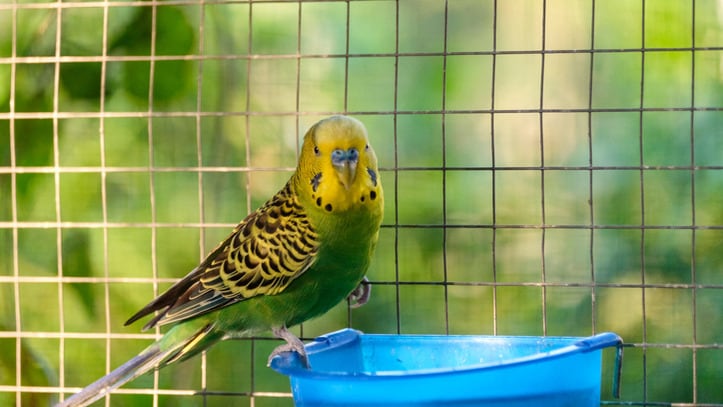
Overview
Feathered pets like parrots can be fascinating additions to the family. Recent estimates say that over 5 million households in the United States have pet birds. However, they can sometimes carry germs that can make people sick. These germs can be carried by any type of pet bird you have.
Backyard poultry
Diseases
Below is a list of diseases that can be spread by pet birds. These diseases can be carried by any type of pet bird you have.
More information
Many wild birds can have the same diseases as pet birds, but for more information about wild birds, visit the wildlife page.
How to stay healthy around pet birds
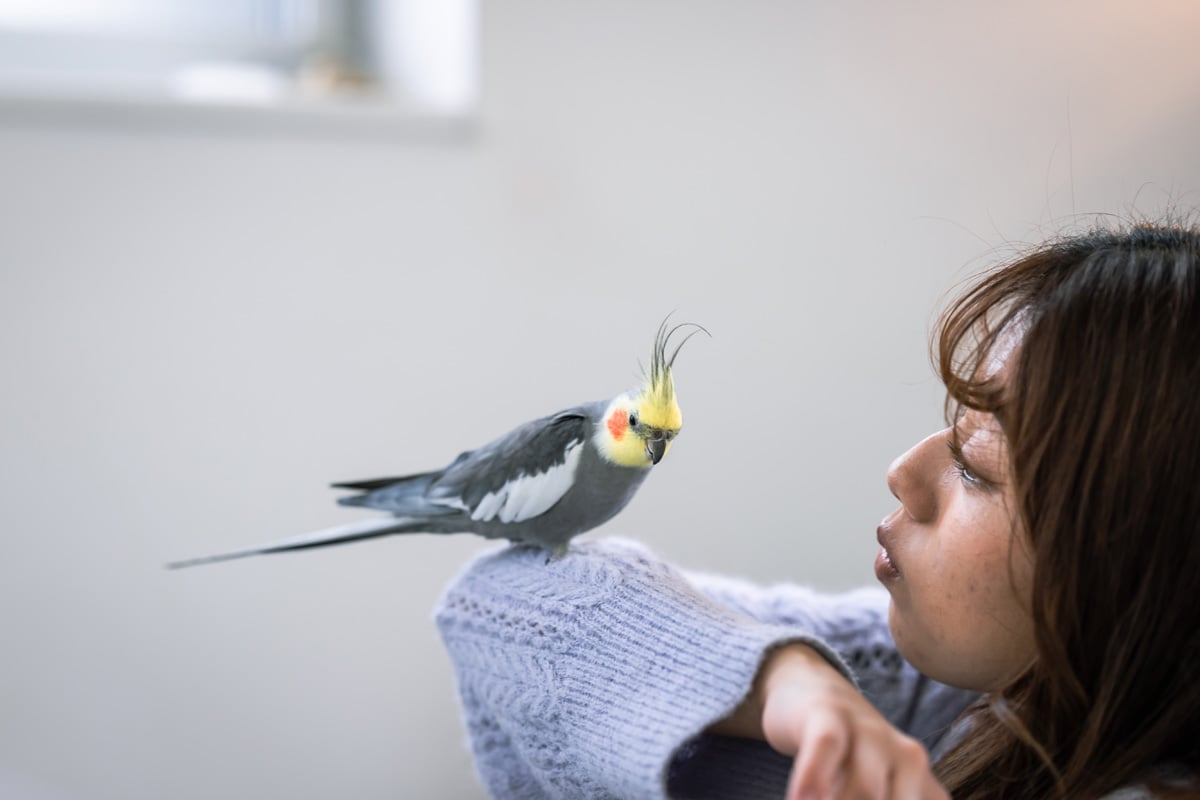
Birds require special care and can sometimes carry germs that can make people sick. Certain types of birds might not be suitable if young children or people with weakened immune systems live in the household.
Wash your hands
Wash your hands thoroughly with soap and water in the following occasions:
- After handling birds
- After handling bird toys, food and water dishes, or other equipment
- After cleaning bird cages, habitats, or perches
- Before you eat, drink, or smoke
Adults should supervise hand washing for young children.
Use hand sanitizer if soap and water are not readily available. Be sure to have hand sanitizer readily available near the bird's enclosure. Encourage guests and children to use hand sanitizer after handling birds.
Safely clean your pet bird's cage and equipment
When cleaning cages, do not pick up droppings with your bare hands.
Don't clean any equipment or materials in the kitchen sink. This includes cages and food and water containers. Bacteria and other germs can cross-contaminate your food preparation areas.
Wash your hands right after handling your bird or any of its supplies.
Prevent bird bites and scratches
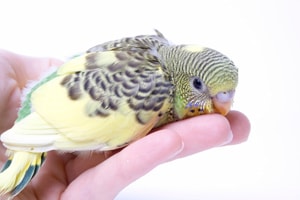
Pet birds do not have teeth. However, their beaks can still cause a lot of damage if they bite or attempt to bite you. Birds can also have very sharp nails and talons. Germs can spread from bird bites and scratches, even when the wound does not seem deep or serious.
Always closely supervise children around birds.
If a bird scratches or bites you
Wash the wounds with soap and water immediately and seek medical attention if:
- The bird appears sick,
- The wound is serious, or you think you need stitches,
- The wound becomes red, painful, warm, or swollen, and/or
- It has been more than 5 years since you got your last tetanus shot.
A serious wound is characterized by uncontrolled bleeding, loss of function, extreme pain, muscle or bone exposure.
If you seek medical attention, make sure to tell your doctor a bird bit or scratched you.
How to keep birds healthy
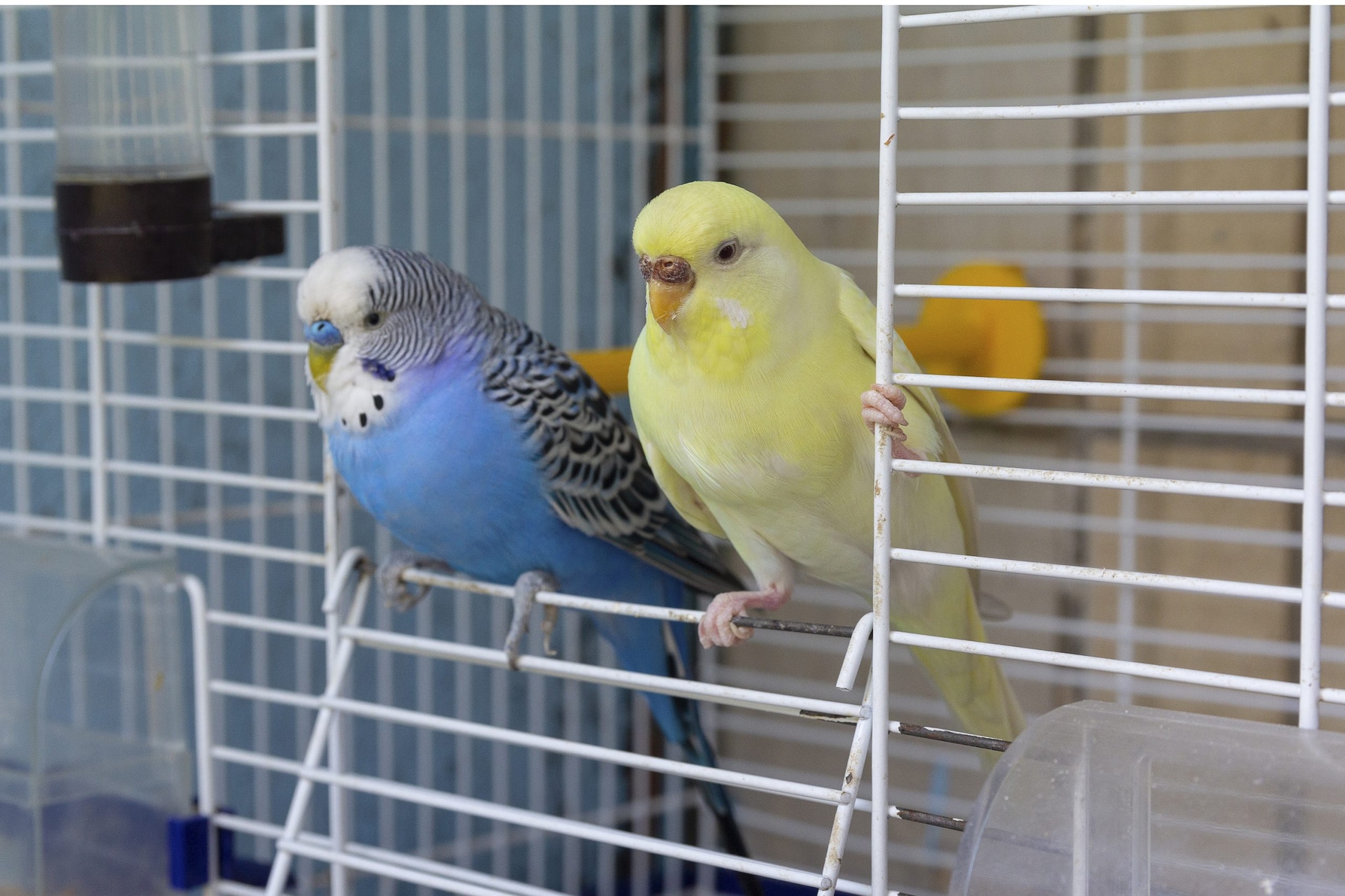
Before choosing a pet bird
Check local laws
Check your state, local, and property laws before adopting or purchasing a pet bird. Many governments have ordinances against certain pets because of noise, size, or public health risk.
Find an avian veterinarian
Identify a local veterinarian who has experience with pet birds (an avian veterinarian) to help you keep your bird healthy.
Research how to care for your bird
Learn about the different types of birds and their personalities and attention needs before you bring one home. Birds are very intelligent and social animals that require a lot of attention. Research the life span for the type of bird you are interested in.
Research how to properly care for your bird before purchase. Ask your veterinarian how to properly care for the bird you are selecting. This includes asking about the best food and enclosure or environment for your potential pet.
Selecting location for enclosure
Select a location for your bird's cage, perch, or enclosure. Pet birds need to be housed in a warm, draft-free location. It should have adequate lighting and is close to activity in the household.
How to choose a pet bird
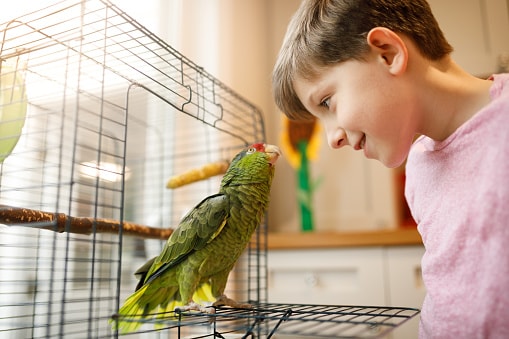
Find the right bird for your lifestyle
Match a bird's attitude, temperament, size, activity level, and life span with your lifestyle. This includes your family, your home, and the amount of time you have to spend with your pet.
Choose healthy birds
Pick birds that are bright, alert, and active. Birds should have smooth, sleek, and soft feathers that are free of debris or droppings. Birds who seem depressed, aren't moving around very much, or look dirty may be ill.
Learn the signs of illness in a bird, which can include:
- Appearing sluggish or depressed
- Having ruffled feathers or areas of feather loss
- Abnormal breathing, and
- Fluid running from its eyes or nose.
Introducing new birds
Wait 30 days before introducing new birds to existing birds. Keep the birds separated during this period. This will help prevent the new birds from passing disease to your existing animals. Wash your hands with soap and water before working with each group of birds. Keep water and food dishes, toys, and other cage/perch equipment separate and clean.
Importing pet birds into the United States
USDA regulates the importation of pet birds. Because of the risk of avian influenza (bird flu), USDA restricts the importation of pet birds from certain countries. They also enforce a 30-day quarantine for all imported birds except those that come from Canada. People interested in importing pet birds should visit the USDA non-US Origin Pet Bird Importation website.
How to house pet birds
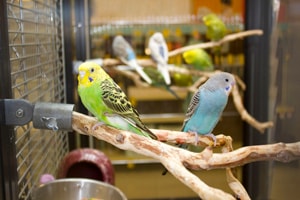
Provide a safe, sturdy enclosure or cage for your bird. Keep pet birds from interacting with all wild animals and insects such as mosquitoes. These animals and insects can carry diseases that can be spread to your pet birds.
Do not allow your birds to fly or roam around the house without supervision. They could get accidentally trapped or hurt.
Avoid keeping or housing pet birds in areas where food or drinks are prepared, served, or stored. This includes kitchens or dining rooms.
Closely supervise any interaction of your birds with children or other pets to reduce the chance of injuries.
Clean and disinfect pet bird cages and equipment
Keep bird cages, enclosures, and perches clean to prevent the build-up of droppings.
Never use food preparation areas to clean habitats and supplies. Clean these items outside of the home when possible.
If you clean habitats and supplies indoors, use a laundry sink or bathtub. Thoroughly clean and disinfect the area right afterward.
Monitor your pet bird's health
Regularly visit an avian veterinarian for routine check-ups to keep your bird healthy and prevent infectious diseases. Sick birds may become thin, depressed or sluggish, have diarrhea, have fluid running from their eyes, or lose feathers. However, birds can also carry germs that might make people sick without the bird appearing sick at all.
First avian veterinarian visit
Take your bird to a veterinarian with experience with pet birds (avian veterinarians) within a few days of purchase or adoption. The veterinarian will perform a health visit and give you advice on caring for your new pet. Return to the veterinarian for checkups and beak, nail, or wing trimmings, as recommended.
If your bird becomes sick or dies within a month after purchase or adoption:
- Contact your veterinarian.
- Inform the store, breeder, or adoption organization.
- Consider waiting before you purchase or adopt another pet.
- Do not reuse equipment until it has been cleaned and disinfected.
Clean any germs out of the cage or perch and equipment before adopting or purchasing another pet. Properly clean and disinfect the cage, enclosure, perch, or any equipment before reusing.
Resources
Selecting and caring for a pet bird
- Find a veterinarian who specializes in bird medicine
- Selecting a Pet Bird (American Veterinary Medical Association)
- Pet Travel - U.S. Department of Agriculture (USDA)
Importing pet birds
Staying healthy around pet birds
Guidance and recommendations
- Measures to control bird to human diseases (National Association of State Public Health Veterinarians)
- Measures to prevent disease from animals in public settings (National Association of State Public Health Veterinarians)
